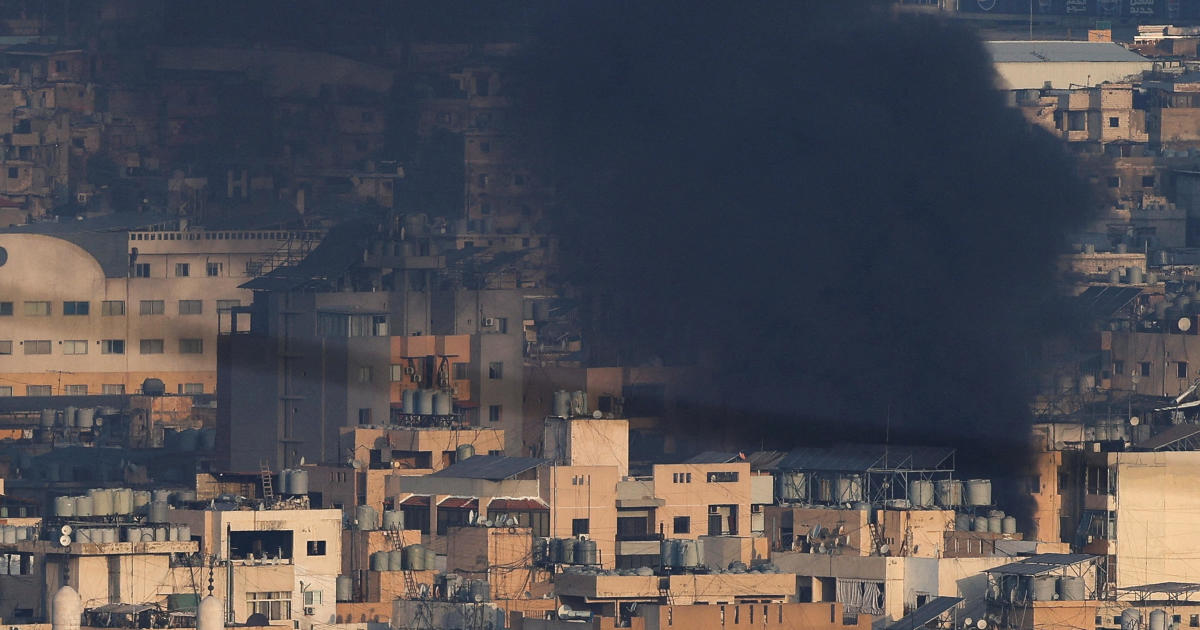Israel’s military operations in Lebanon have intensified in recent weeks, resulting in a significant humanitarian crisis and escalating international concern. The Israeli Defense Forces (IDF) have launched repeated airstrikes targeting Hezbollah infrastructure and personnel, primarily in and around Beirut, causing widespread destruction and civilian casualties. These actions, while framed by Israel as necessary to neutralize Hezbollah’s capabilities and protect its citizens, have drawn sharp criticism from the international community, including the United States, due to the high number of civilian deaths and the expanding scope of the operations. The situation presents a complex and rapidly evolving challenge with significant implications for regional stability and international relations.
The Escalation of Conflict and Civilian Casualties
Israeli Airstrikes and Ground Operations
The IDF’s operations in Lebanon began with targeted airstrikes, focusing on what Israel identifies as Hezbollah weapons caches and command centers. These strikes, however, have frequently resulted in significant collateral damage and high civilian casualties. The intensity of these strikes has varied, with some periods seeing a dramatically increased rate of bombing runs, culminating in exceptionally deadly days where over two dozen civilians were reported killed in a single 24 hour period. The strikes are concentrated in areas considered strongholds of Hezbollah, with the southern Beirut suburb of Dahiyeh being a frequent target. Following a period of solely aerial assaults, the IDF subsequently initiated limited ground incursions into southern Lebanon. These ground operations have reportedly focused on destroying Hezbollah’s tunnel networks used for transporting weapons and personnel. The IDF claims to be targeting only Hezbollah infrastructure, but independent verification of these claims remains difficult due to ongoing hostilities and restricted access to affected areas. Despite these claims, evidence suggests significant civilian casualties and damage.
Humanitarian Crisis and International Response
The escalating conflict has triggered a major humanitarian crisis in Lebanon. The United Nations estimates that hundreds of thousands of people, including a disproportionate number of children, have been displaced from their homes due to the fighting and widespread destruction. The casualty toll is staggering, with thousands of deaths and injuries reported. Hospitals and essential services are overwhelmed, and access to humanitarian aid remains a major challenge in the conflict zones. The United States has expressed growing concern over the escalating situation. The Biden administration has issued warnings to Israel regarding the high civilian casualty count and the breadth of their operations. The US has also indicated that a failure to increase the flow of humanitarian aid to Lebanon could jeopardize US military assistance to Israel. Other international actors have also voiced deep concern over the humanitarian implications and the broader security risks of the conflict. Efforts to negotiate a ceasefire and secure humanitarian access remain ongoing, although considerable obstacles persist due to the complexity of the situation and the deep-seated antagonism between Israel and Hezbollah.
Hezbollah’s Role and the Strategic Context
Hezbollah’s Military Capabilities and Activities
Hezbollah, a powerful Iranian-backed militia, possesses a significant military arsenal and extensive tunnel networks in southern Lebanon. Its stated goals are both defensive and offensive, including the capacity to wage war against Israel if it decides that’s its preferred course of action. Israel sees Hezbollah as an existential threat and views the group’s military capabilities as a significant national security risk. Hezbollah has frequently fired rockets and drones at Israeli territory and launched cross-border incursions in recent months in what Israel is referring to as an ongoing war. The group’s close ties to Iran further complicate the geopolitical dynamics in the region and fuel anxieties among its neighbours.
The Geopolitical Implications of the Conflict
The conflict between Israel and Hezbollah is not merely a local dispute; it carries profound regional and global implications. The involvement of Iran, a major regional power, casts a long shadow over the situation. Iran’s support for Hezbollah has created a proxy conflict that is playing out across the Levant. Additionally, the conflict’s effects on regional security and global efforts in counter-terrorism have already begun to be noted and analyzed by many. International actors are facing difficult choices to balance security interests, humanitarian concerns, and diplomatic pressures in mediating this volatile confrontation.
Israel’s Justification and Objectives
Security Concerns and Strategic Goals
Israel justifies its military operations in Lebanon as necessary to neutralize Hezbollah’s military capabilities and prevent cross-border attacks. The IDF aims to degrade Hezbollah’s rocket and drone arsenal, destroy its tunnel infrastructure, and disrupt its operational networks. This includes the removal of certain leaders believed to have directly orchestrated attacks against Israeli citizens. The stated objective of the ground raids in southern Lebanon is limited to destroying and neutralizing several kilometers of Hezbollah assets that sit just across the Israeli-Lebanese border. Israel claims the goal isn’t occupation, but rather securing its northern border and enabling the return of internally displaced Israeli citizens that live near Lebanon to return to their homes, and this requires removing Hezbollah threat first.
Domestic and International Perspectives on Israel’s Actions
Israel’s military actions have drawn criticism for the high civilian death toll and the wide-scale damage inflicted across Beirut. While the government in Israel frames its military operations as necessary security actions to protect its citizens, human rights groups and the international community have highlighted the impact on Lebanese civilians. The long-term strategic consequences are not yet certain but certainly bring questions about potential renewed escalation and its broader ramifications.
Take Away Points:
- The conflict between Israel and Hezbollah in Lebanon has led to a major humanitarian crisis, with thousands of civilian casualties and widespread displacement.
- Israel’s military operations, while framed as necessary to neutralize Hezbollah’s capabilities, have drawn international criticism for the high number of civilian casualties.
- Hezbollah’s military capabilities and Iran’s support for the group are significant factors driving the conflict and impacting regional security dynamics.
- The conflict has complex geopolitical ramifications, raising significant challenges for international efforts to address the humanitarian crisis and foster lasting stability in the region.




